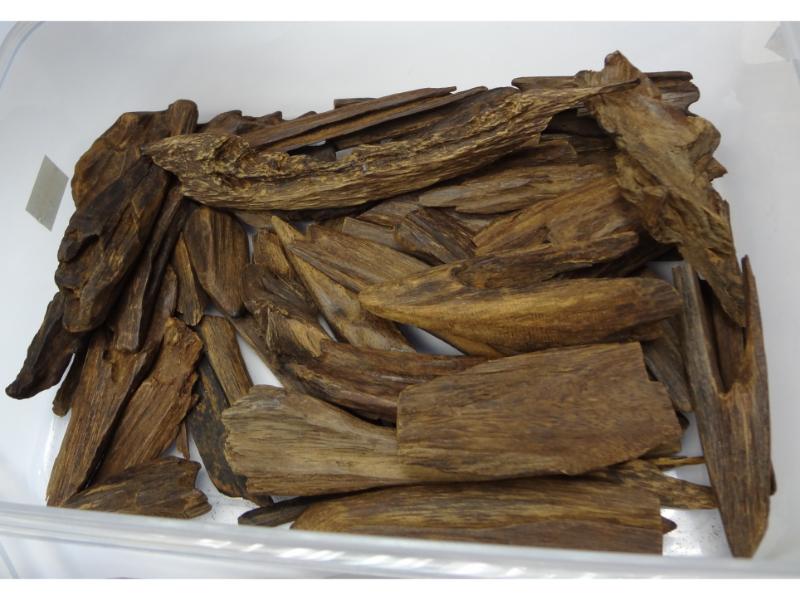Search in medicinals
Aquilariae Lignum Resinatum
Aquilaria [wood]
沉香 〔沉香〕 chén xiāng

Alternate English names: agalloch aloeswood
Alternate Chinese names: 沉水香 chén shuǐ xiāng; 沉香木 chén xiāng mù
Kingdom: Plant
Origin in PRC Pharmacopoeia: Aquilaria sinensis (Lour.) Gilg. (PRC Pharmacopoeia)
Origin in unofficial sources: Aquilaria agallocha Roxb. [= Aloexylon agallochum Lour.]; Aquilaria sinensis (Lour.) Gilg.*
Use: Medicinal
Category: Qì-rectifying agents
Properties: Bitter, acrid; warm.
Channel entry: Kidney, spleen, and stomach channels.
Actions and indications:
- Moves qì and relieves pain: Distention and pain in the chest and abdomen.
- Warms the center and checks vomiting:
Vomiting and retching due to stomach cold. - Promotes qì absorption and calms panting: Vacuity panting.
Dosage and method: Oral: 1.5–3g in decoctions; or use in pills or powders.
Warnings: Use with care in yīn vacuity with effulgent fire and in qì vacuity fall.
Product description: This product comes in irregular pieces roughly 10 cm long and 2–4 cm wide with knife marks at each end and sometimes signs of rotting. The surface is brown with darker lines in the grain marking the resinous medullary rays, which appear as black speckles on the transverse section. The wood is hard and heavy and gives off a strong aroma especially when it burns. The decocting pieces are fine shavings.
Quality: The best quality is hard, old wood that is the color of bull's horn, has a high oil content, sinks in water, ignites easily, and exudes oil and a powerful aroma when burning.
Production area: Guǎngdōng, Hǎinán.
Etymology: The name chén xiāng 沉香, literally sinking aroma,
i.e., the aromatic wood that sinks in water.